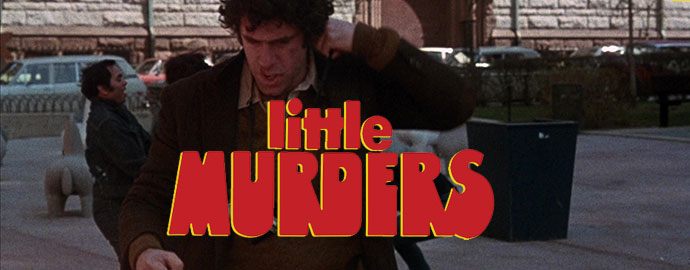
Color, 1971, 108 mins. 6 secs.
Directed by Alan Arkin
Starring Elliott Gould, Marcia Rodd, Vincent Gardenia, Elizabeth Wilson, Jon Korkes, John Randolph, Doris Roberts, Lou Jacobi, Donald Sutherland, Alan Arkin
Indicator (Blu-ray) (UK RB HD), Fox (DVD) (US R1 NTSC) / WS (1.85:1) (16:9)
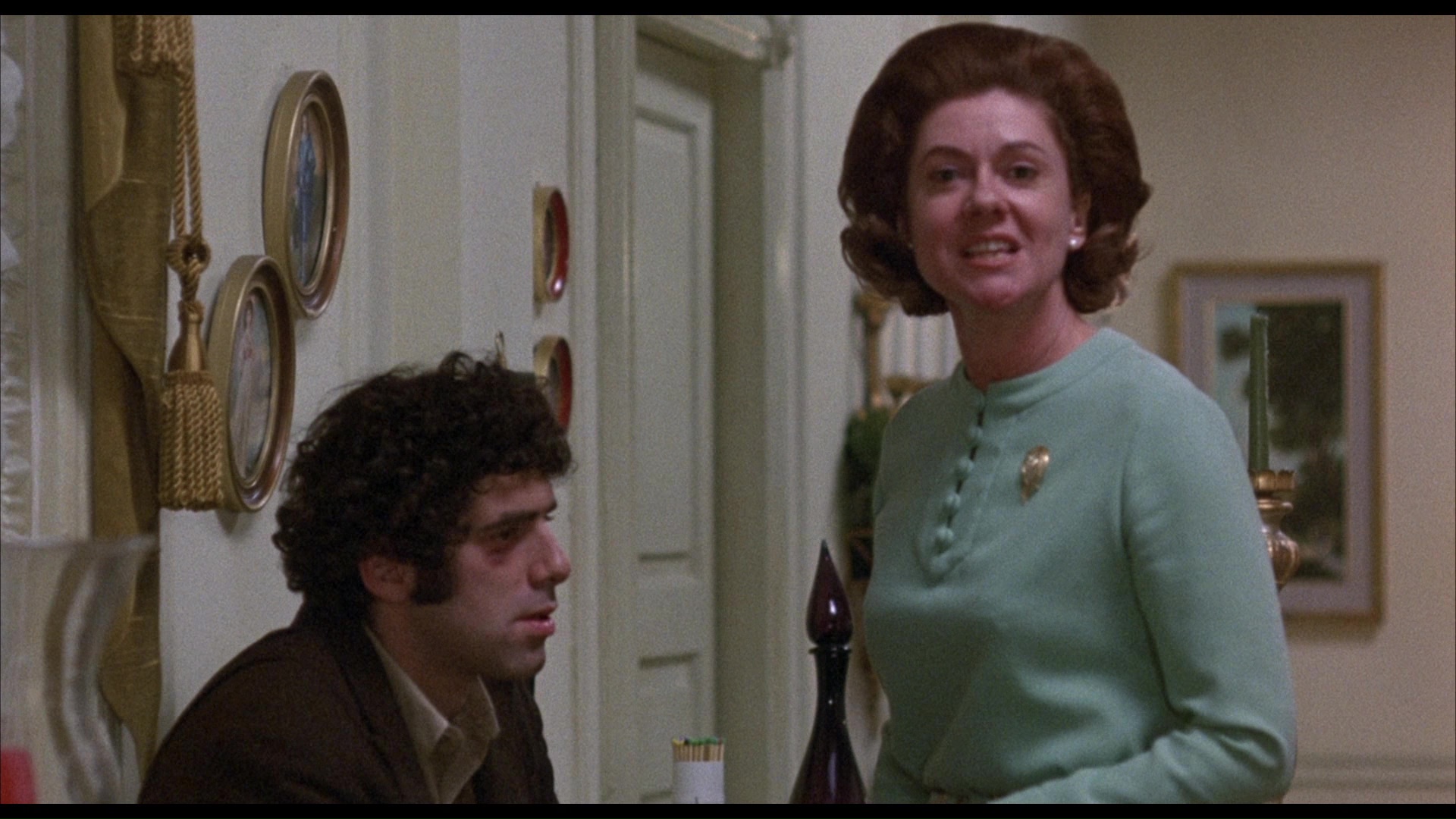 City nightmare
City nightmare 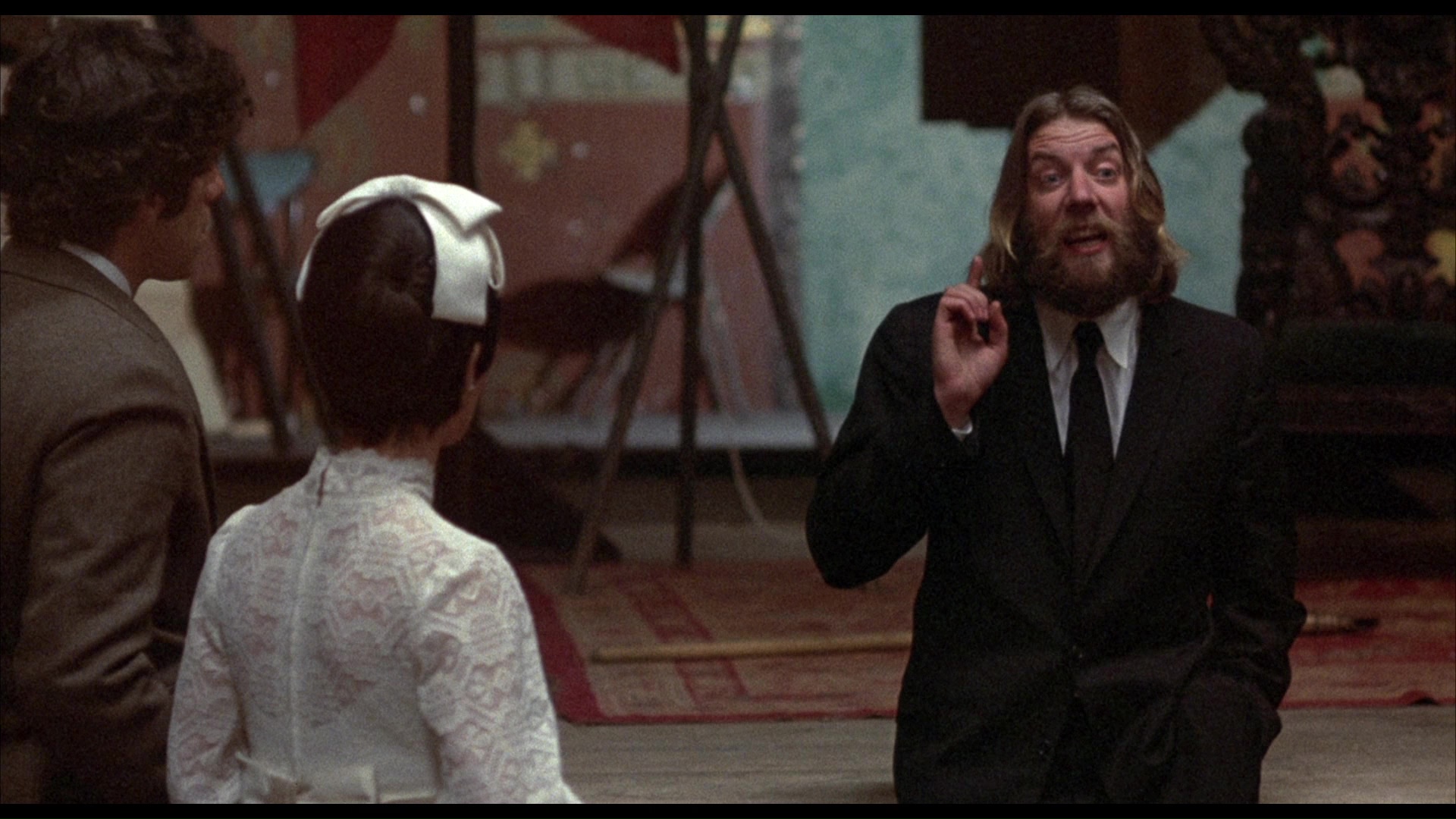 classified as a comedy, this adaptation by Pulitzer-winning cartoonist and writer Jules Feiffer of his own late '60s stage play is as potent as any horror film and one of the great undiscovered would-be cult films. Released the same year as Feiffer's much more famous Carnal Knowledge, this film seemed like a bizarre and uncomfortable sit for mainstream viewers despite the presence of star Elliott Gould, a hot ticket at the time following his massive success in M*A*S*H; however, the passage of time has proven it to be not only prescient but even more chilling today with a final conclusion that still packs a wallop.
classified as a comedy, this adaptation by Pulitzer-winning cartoonist and writer Jules Feiffer of his own late '60s stage play is as potent as any horror film and one of the great undiscovered would-be cult films. Released the same year as Feiffer's much more famous Carnal Knowledge, this film seemed like a bizarre and uncomfortable sit for mainstream viewers despite the presence of star Elliott Gould, a hot ticket at the time following his massive success in M*A*S*H; however, the passage of time has proven it to be not only prescient but even more chilling today with a final conclusion that still packs a wallop. 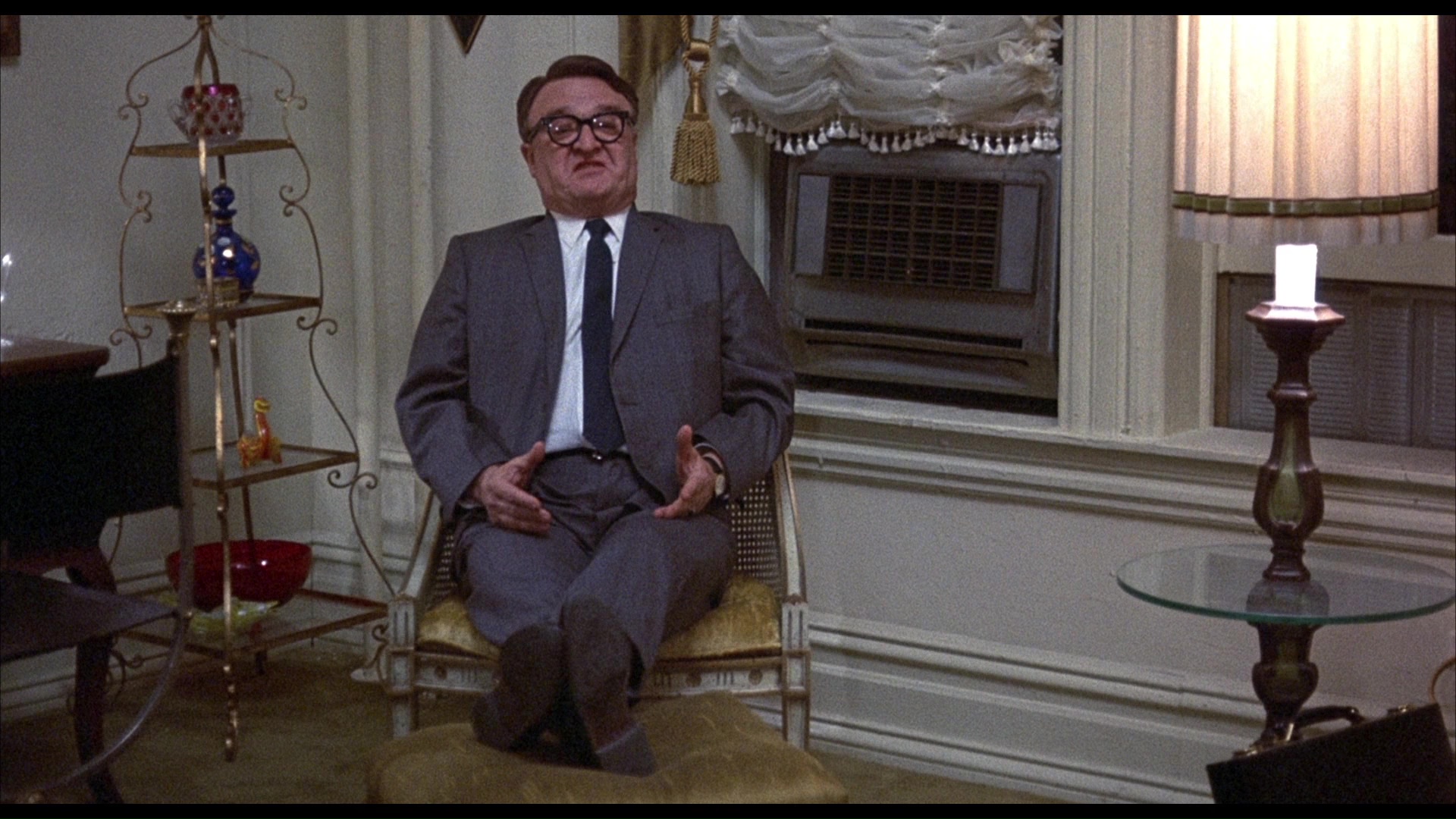
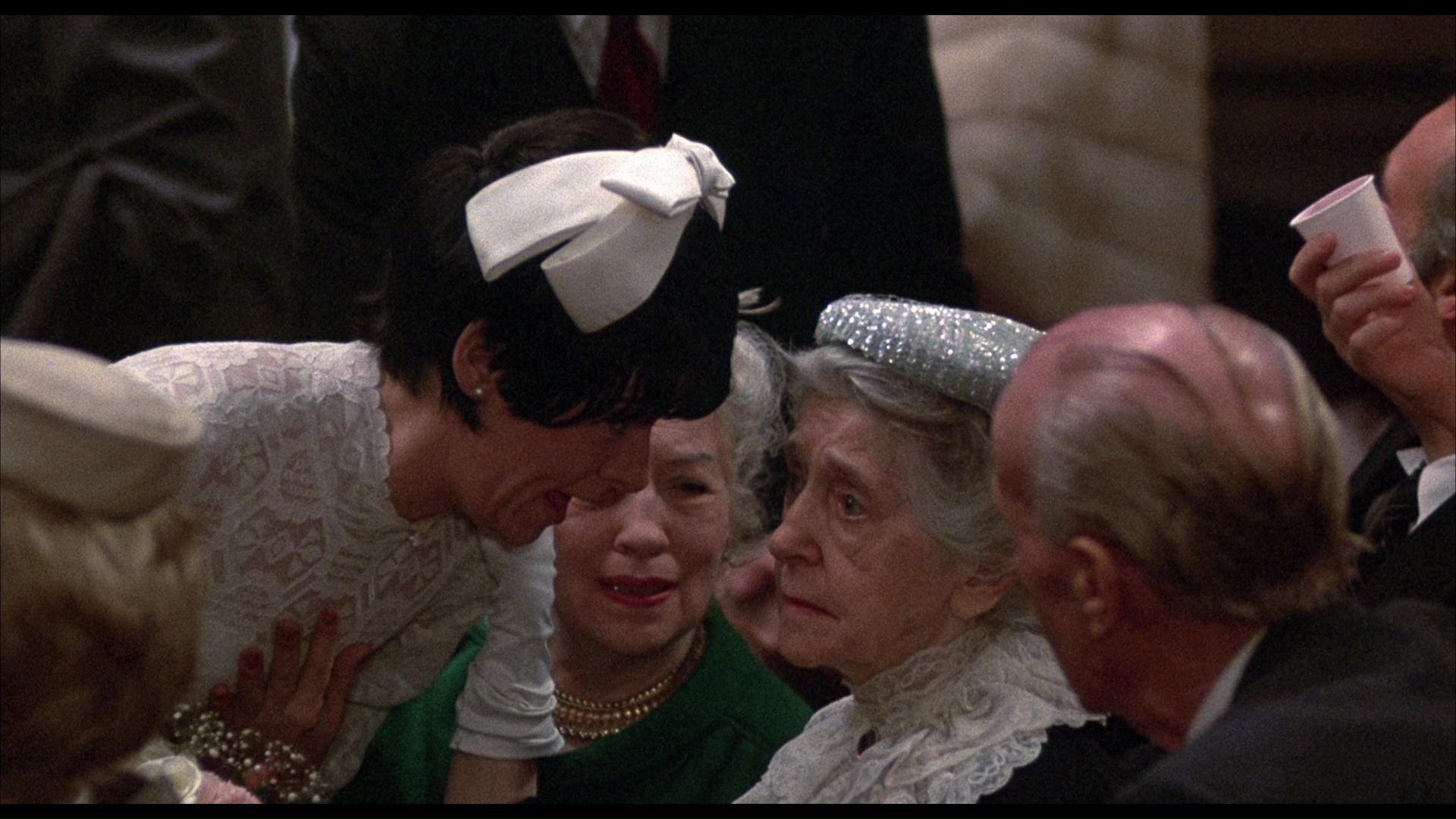
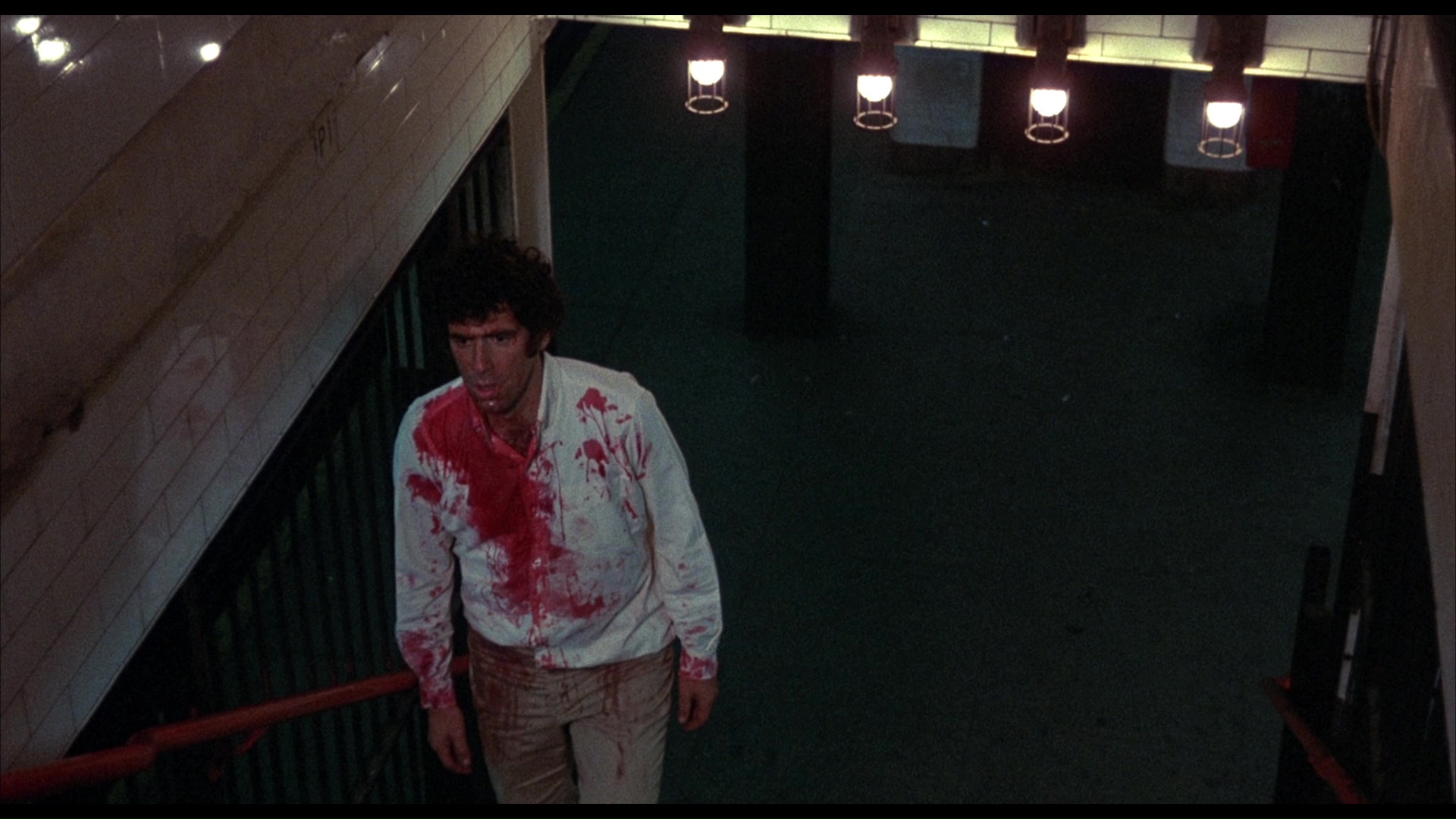 laissez-faire reverend whose blanket philosophy of "It's all right" at all costs is a spot-on predictor of the pervasive '70s attitude that the actor would later revisit with more overtly horrific results in Invasion of the Body Snatchers. The rest of the cast is sprinkled with great New York-based
laissez-faire reverend whose blanket philosophy of "It's all right" at all costs is a spot-on predictor of the pervasive '70s attitude that the actor would later revisit with more overtly horrific results in Invasion of the Body Snatchers. The rest of the cast is sprinkled with great New York-based 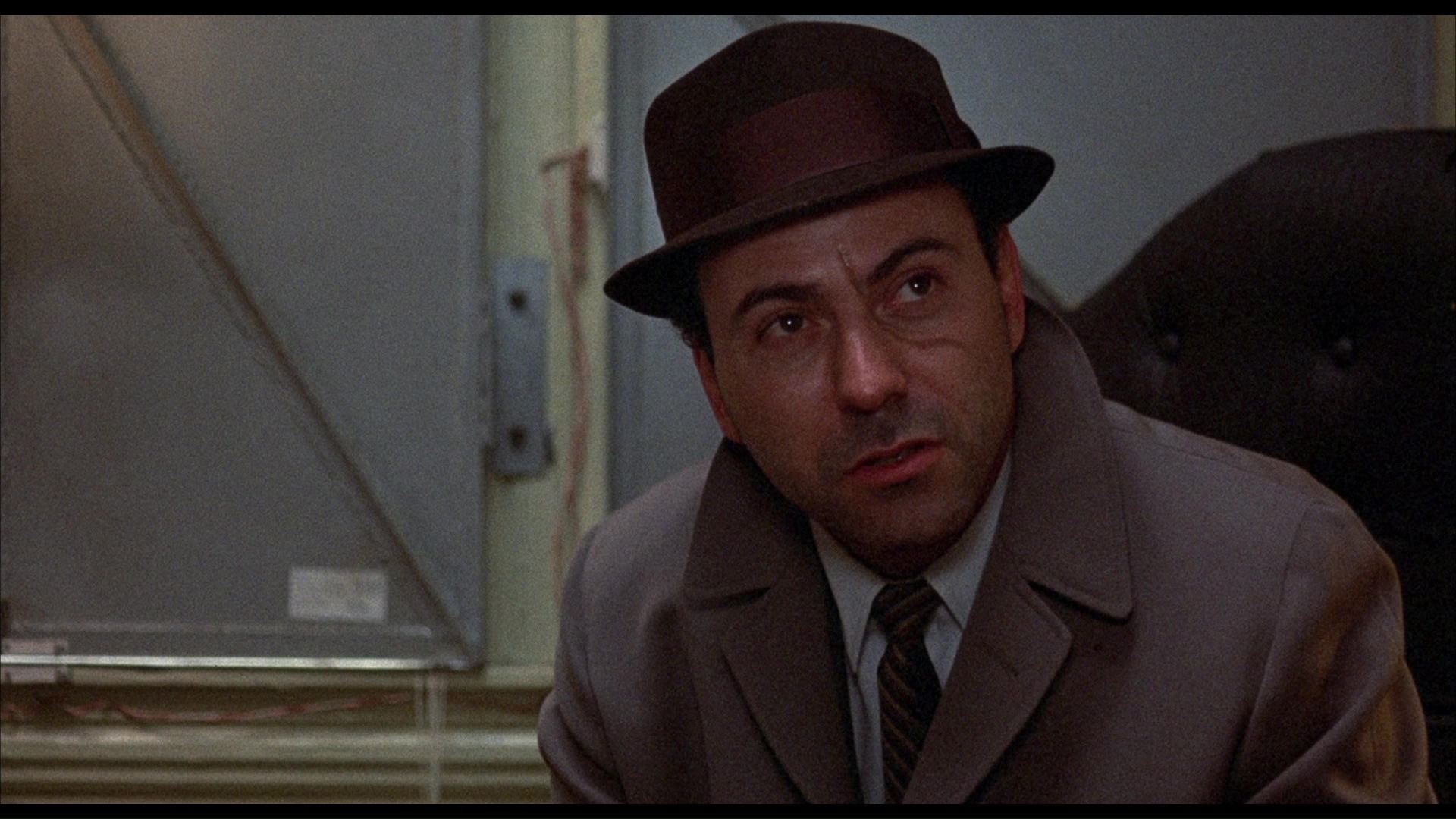 actors (almost all from Brooklyn in some way or another), including newly written parts filled by John Randolph and Doris Roberts. The end result is really something special and, as mentioned above, a little too timely for comfort; the resolution in particular will send a chill down the spine of many American viewers now far more than it did at the time given the nature of current headlines.
actors (almost all from Brooklyn in some way or another), including newly written parts filled by John Randolph and Doris Roberts. The end result is really something special and, as mentioned above, a little too timely for comfort; the resolution in particular will send a chill down the spine of many American viewers now far more than it did at the time given the nature of current headlines. 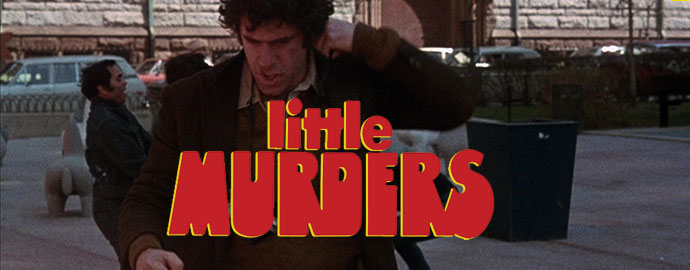
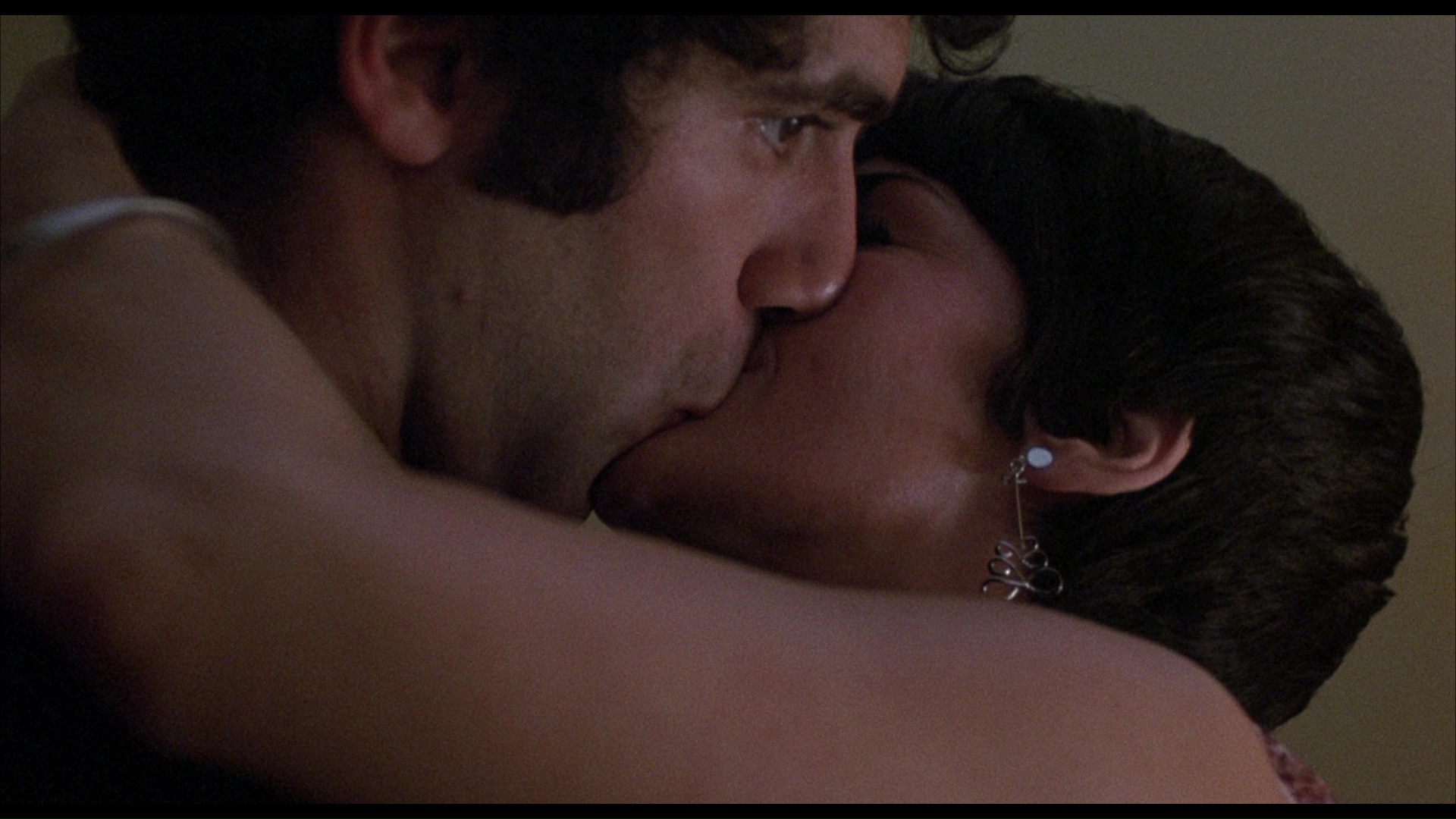 An excellent new Arkin interview, "Beginner's Luck" (18m23s), features good-natured reminiscences about taking a largely improvisational approach to his directing and the very harmonious working relationship he shared with Feiffer and the key lessons he learned from this film's legendary cinematographer, Gordon Willis. Gould turns up next for "A Certain Amount of Black (17m34s), whose title comes from an observation he heard from Ingmar Bergman; he's very sharp and articulate as he goes through the theatrical history again and touches on some of his own production experiences (including one from Bob & Carol & Ted & Alice) that informed his approach to this role (and his unofficial producer capacity). Feiffer offers his own take on camera in "Acts of Random Violence" (31m31s), which reiterates a fair amount of his commentary info but arranges it into an easy to digest half-hour summary including a discussion of how the story evolved from an aborted novel project and sprang from his response to the public's cockeyed treatment of recurring violence. The archival "Speaking of Films: Little Murders" (30m11s), whose title is given as "Talking About Films" on the actual audio, features an academic breakdown of the film with Feiffer and critics Susan Rice, Robert Geller, Leonard Maltin and Sean Driscoll, taking a distinctly Vietnam-era take on the material. A batch of radio interviews (31m37s) compiled for broadcast promotion (sent out on vinyl) with Gould, Sutherland, and Arkin, and not surprisingly, the Sutherland segment will the freshest and most unique here since we haven't heard from him before on the disc. Also included are the original trailer, a Trailers from Hell edition presented by Larry Karaszewski (with one highlight including this film's link to What's Up, Doc?), a handful of TV spots (1m51s) touting this as "a terrifying comedy" (talk about truth in advertising!), a collection of radio spots (2m34s), and a gallery of stills, production photos, and promotional material. As usual the limited first edition (3,000 units) features an exclusive insert booklet, this time containing a very impassioned Jim O’Rourke essay called "End of the Road," bios of Arkin, Feiffer and Rodd, a promotional print packet with trivia and interview snippets (as well as a study guide!), a brief Arkin note about Willis, coverage of director Jean Renoir's admiration for the film and a fan letter he sent to Arkin, and a few snippets of critical responses from the film's theatrical release. Definitely one of the finest Indicator releases to date and hopefully one that will end up on several of the year's top ten lists.
An excellent new Arkin interview, "Beginner's Luck" (18m23s), features good-natured reminiscences about taking a largely improvisational approach to his directing and the very harmonious working relationship he shared with Feiffer and the key lessons he learned from this film's legendary cinematographer, Gordon Willis. Gould turns up next for "A Certain Amount of Black (17m34s), whose title comes from an observation he heard from Ingmar Bergman; he's very sharp and articulate as he goes through the theatrical history again and touches on some of his own production experiences (including one from Bob & Carol & Ted & Alice) that informed his approach to this role (and his unofficial producer capacity). Feiffer offers his own take on camera in "Acts of Random Violence" (31m31s), which reiterates a fair amount of his commentary info but arranges it into an easy to digest half-hour summary including a discussion of how the story evolved from an aborted novel project and sprang from his response to the public's cockeyed treatment of recurring violence. The archival "Speaking of Films: Little Murders" (30m11s), whose title is given as "Talking About Films" on the actual audio, features an academic breakdown of the film with Feiffer and critics Susan Rice, Robert Geller, Leonard Maltin and Sean Driscoll, taking a distinctly Vietnam-era take on the material. A batch of radio interviews (31m37s) compiled for broadcast promotion (sent out on vinyl) with Gould, Sutherland, and Arkin, and not surprisingly, the Sutherland segment will the freshest and most unique here since we haven't heard from him before on the disc. Also included are the original trailer, a Trailers from Hell edition presented by Larry Karaszewski (with one highlight including this film's link to What's Up, Doc?), a handful of TV spots (1m51s) touting this as "a terrifying comedy" (talk about truth in advertising!), a collection of radio spots (2m34s), and a gallery of stills, production photos, and promotional material. As usual the limited first edition (3,000 units) features an exclusive insert booklet, this time containing a very impassioned Jim O’Rourke essay called "End of the Road," bios of Arkin, Feiffer and Rodd, a promotional print packet with trivia and interview snippets (as well as a study guide!), a brief Arkin note about Willis, coverage of director Jean Renoir's admiration for the film and a fan letter he sent to Arkin, and a few snippets of critical responses from the film's theatrical release. Definitely one of the finest Indicator releases to date and hopefully one that will end up on several of the year's top ten lists.